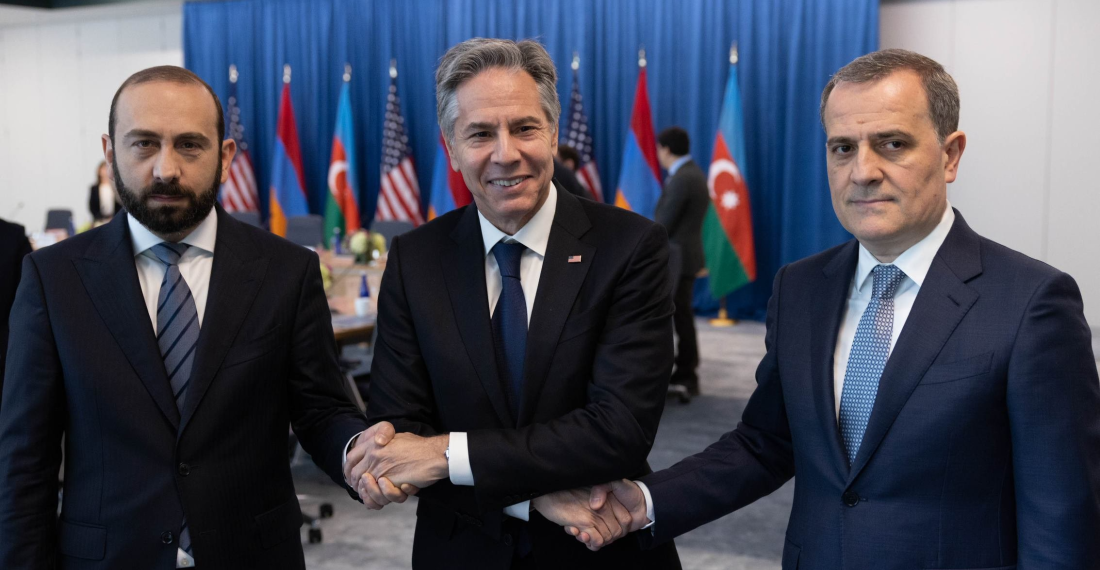On Monday (1 May) the foreign ministers of Armenia and Azerbaijan met with the US Secretary of State Antony Blinken for the first day of talks understood to be taking place until latest Friday (5 May). AFP have reported that the talks will last four days.
Armenian Foreign Minister Ararat Mirzoyan and Azerbaijani Foreign Minister Jeyhun Bayramov, along with their delegations, are meeting at the George P. Schultz National Foreign Affairs Training Center in Arlington, Virginia, a short distance south-west of Washington D.C.
Mirzoyan, Bayramov and Blinken are understood to have sat down for negotiations at 09:45 local time yesterday, after both foreign ministers had their own individual meetings with Blinken beforehand.
Statements issued by both Armenia and Azerbaijan said that issues of the security situation in the region and the process of normalisation of relations between the two countries were discussed in the meeting hosted by Blinken.
It is understood that the rest of the week's talks will be bilateral. Indeed, Radio Free Europe/Radio Liberty's Armenian Service reports that the talks are more aimed at "an agreement on the normalisation of relations" rather than a peace treaty, citing a U.S. official speaking to reporters on the condition of anonymity.
"Both parties have acknowledged that this is the first time that they will be able to meet over the course of a few days," the official added. "We expect discussions throughout the week. Our goal is to make sure that the ministers are able to sit down and talk to each other."
"It is for both parties to normalize their relations to be able to live together […], to strengthen their economic ties and perhaps even to reinforce their collective security in the region," he said, adding that all issues, including issues of how ethnic minorities are treated in both countries in terms of their rights and security, are "being discussed", reports RFE/RL.
Phone calls with Pashinyan and Aliyev in the run up to Washington D.C. talks, Russia so far silent
On Saturday (29 April) and Sunday (30 April), Secretary Blinken also held phone calls with the Armenian Prime Minister Nikol Pashinyan and Azerbaijani President Ilham Aliyev, respectively. Following the calls, Blinken said that he reiterated his continued support for securing peace between Armenia and Azerbaijan, as well as the U.S. willingness to facilitate talks.
There has thus far been no comment from Russia on the Washington D.C. talks. Moscow has viewed EU and US mediation of a peace settlement between Armenia and Azerbaijan with suspicion, describing them as an attempt to undermine Russian influence in what it calls its "sphere of influence".
When asked about Russia's position on the talks, another US State Department official said they would be "disappointed if they take it negatively".
On Thursday (27 April), Russian Foreign Ministry spokeswoman Maria Zakharova announced that an agreement on an Armenia-Azerbaijan meeting in Moscow had been made, but a fixed date would only be agreed later.
This week's meetings in Washington D.C. were then announced one day later, on Friday, and will precede any further talks that may happen in Moscow in the near future.
The Washington D.C. talks between Armenia and Azerbaijan will continue today, on Tuesday (2 May).
source: commonspace.eu with agencies
photo: Twitter







